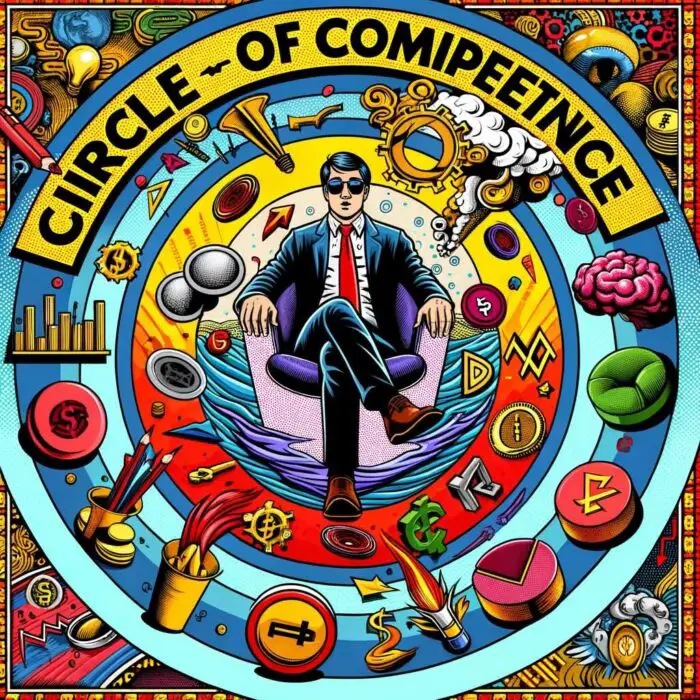Warren Buffett, fondly known as the ‘Oracle of Omaha’, has left an indelible mark on the world of finance. His timeless investment philosophy, profound insights, and ethical business practices have not only garnered him immense personal wealth but have also significantly shaped modern investment strategies, corporate governance standards, and philanthropic initiatives in finance. Buffett’s influence extends far beyond Berkshire Hathaway’s portfolio, offering investors, executives, and academics invaluable lessons in investing, leadership, and societal responsibility.

Who is Warren Buffett? A Short Biography
Born in Omaha, Nebraska, in 1930, Warren Buffett showed an early knack for numbers and a keen interest in business. From delivering newspapers to owning pinball machines, young Warren was always on the lookout for business opportunities. He bought his first stock at the tender age of 11, and from that point, his fascination with the world of investing only grew.
Buffett graduated from the University of Nebraska at 19, and later studied under the legendary Benjamin Graham at Columbia Business School, absorbing the tenets of value investing that would come to define his investment approach. After working for a few years at Graham’s investment firm, he returned to Omaha and started his own investment partnership.

Powerhouse Holding Company
In 1965, he took control of a struggling textile firm named Berkshire Hathaway and transformed it into a powerhouse holding company with interests in diverse industries, from insurance and railroads to confectionery and furniture. Under his leadership, Berkshire Hathaway’s stock has generated immense wealth for its shareholders, turning many into millionaires and billionaires.
Today, Warren Buffett is widely regarded as one of the greatest investors of all time. His down-to-earth persona, combined with his exceptional investing acumen and commitment to philanthropy, has made him an influential figure not just in the realm of finance, but in the broader landscape of business and society.

Buffett’s Investment Philosophy

At the heart of Warren Buffett’s investment philosophy is a firm commitment to value investing. This approach involves buying stocks that appear to be trading for less than their intrinsic or book value. Buffett often likens buying a stock to buying a piece of a business. He doesn’t see stocks as mere ticker symbols or fleeting opportunities for short-term profit but as stakes in real businesses.
This perspective informs his emphasis on understanding the company’s business model, its competitive position, and its future prospects. Buffett is also a patient investor, often holding his investments for many years. He firmly believes in the power of compounding and insists on letting his investments grow over time.
Influence of Benjamin Graham on Buffett’s Strategy
Buffett’s investment philosophy was significantly shaped by his mentor, Benjamin Graham. Known as the ‘father of value investing’, Graham imparted two crucial investing principles to Buffett: the concept of “Mr. Market”, which teaches that the stock market can be irrational and offers buying opportunities to patient investors; and the principle of ‘margin of safety’, which advocates for buying securities at prices significantly below their intrinsic value to create a safety net for investors.
Buffett has expanded upon Graham’s teachings by emphasizing the importance of quality. Unlike Graham, who focused more on buying cheap stocks, Buffett prefers to buy good companies at a fair price. This nuanced adaptation of Graham’s principles has enabled Buffett to consistently beat the market over the long term.

The Concept of “Circle of Competence”
Another cornerstone of Buffett’s investment philosophy is the concept of “Circle of Competence”. Buffett argues that investors should stick to industries and companies they understand, or in other words, stay within their circle of competence.
He believes that by focusing on areas where they have in-depth knowledge, investors can make better decisions and avoid unnecessary risks. This principle explains why, for many years, Buffett avoided technology stocks, as he felt they fell outside his circle of competence.
In essence, Buffett’s investment philosophy embodies a blend of intellect, discipline, and patience. It’s an approach that has not only served him well but has also significantly influenced the strategies of countless investors worldwide. His emphasis on value, understanding, and patient capital has helped to shape the modern investment landscape, bringing clarity and insight to a field often clouded by speculation and short-termism.

Buffett’s Impact on Investing Practices
Warren Buffett’s promotion of long-term investing has significantly influenced the investment community. In a world often preoccupied with quick returns and short-term market fluctuations, Buffett’s approach has been a refreshing and profitable alternative. He often states that his favorite holding period for an investment is “forever,” emphasizing the benefits of patience and the power of compounding returns.
Buffett’s endorsement of a long-term view has encouraged countless investors to resist the temptation of rapid buying and selling, in favor of holding onto high-quality investments that can generate value over time. His approach serves as a constant reminder that investment isn’t a get-rich-quick scheme but a disciplined process of wealth accumulation.

Influence on Portfolio Diversification and Risk Management
While the common adage advises to ‘not put all your eggs in one basket’, Buffett’s stance on diversification somewhat deviates from this notion. He often quips, “Diversification is a protection against ignorance. It makes very little sense for those who know what they’re doing.” His portfolio, often concentrated in a handful of companies, reflects his belief in making significant investments in carefully chosen, well-understood businesses.
That’s not to say Buffett ignores risk management; in fact, it’s quite the opposite. His focus on understanding a business, its economic moat, and its fair price are all vital elements of managing investment risk. Thus, Buffett’s approach to diversification and risk management has reshaped the way many investors think about these concepts, placing greater emphasis on knowledge, understanding, and conviction.

Buffett’s Effect on Investment Analysis and Company Valuation Methods
Buffett’s meticulous approach to investment analysis and valuation has been revolutionary. His preference for simple, understandable businesses led many investors to value simplicity and clarity over complexity and obscurity.
He places considerable importance on a company’s intrinsic value, which he calculates based on future cash flows rather than solely relying on conventional metrics like P/E ratios. This has shifted the focus of many investors from short-term earnings to long-term cash generation potential.
Buffett also considers qualitative factors, like the quality of management and brand strength, which were often overlooked in traditional valuation methods. His emphasis on these elements has enriched the field of investment analysis, encouraging a more comprehensive, holistic approach to company valuation.
Through these influential practices, Buffett has reshaped investing. His emphasis on long-term investing, a nuanced approach to diversification, and a comprehensive method for valuation continue to guide and inspire investors worldwide, profoundly shaping the landscape of modern investing.
source: The Plain Bagel on YouTube

Buffett’s Impact on Corporate Governance
Warren Buffett places significant emphasis on the quality of a company’s management when making investment decisions. He values leaders who are not only competent in running the business, but also possess high levels of integrity. His famous quote, “In looking for people to hire, you look for three qualities: integrity, intelligence, and energy. And if they don’t have the first, the other two will kill you,” exemplifies his approach.
Buffett’s insistence on honest and competent leadership has influenced how investors evaluate management teams. It has underscored the importance of character, ethics, and transparency in running successful businesses, prompting investors to give equal weight to these qualitative factors alongside quantitative measures.
Influence on Transparency and Ethics in Business
Buffett’s preference for transparency and ethics in business has helped set new standards in corporate governance. His annual letters to Berkshire Hathaway shareholders are renowned for their candidness, providing insightful discussions about the company’s successes and failures. Buffett doesn’t shy away from discussing the challenges facing his businesses, setting an example of openness that has become a gold standard in corporate communication.
Furthermore, his commitment to ethical practices, reflected in his dealings with companies, partners, and shareholders alike, has raised the bar for corporate integrity. Buffett’s philosophy has encouraged businesses to prioritize ethical conduct, not merely as a legal obligation but as a core business principle.

The Role of Shareholder Activism
While Buffett is not a typical activist investor, he has often used his platform to voice his opinions on corporate actions. His stances on issues like executive compensation and dividend policies have sparked broader discussions in the financial community and influenced corporate policies.
He strongly believes in the rights of shareholders and stresses that the management’s primary duty is to act in the best interest of the shareholders. His advocacy for shareholder rights has further strengthened his reputation as a champion of good corporate governance.
In sum, Buffett’s influence on corporate governance has been profound and far-reaching. His focus on ethical leadership, transparency, and shareholder rights has helped shape today’s standards for corporate conduct, setting a benchmark that many strive to meet.
source: CNBC Television on YouTube
The Berkshire Hathaway Effect
Under the helm of Warren Buffett, Berkshire Hathaway has evolved from a struggling textile firm into a colossal holding company. Berkshire Hathaway’s unique business model is structured around owning a diversified mix of businesses and a large portfolio of stocks. Its subsidiaries range from insurance companies like GEICO to consumer goods businesses like See’s Candies and Duracell.
One key aspect of Berkshire’s model is its insurance business, which provides a steady stream of ‘float’ – the money held from insurance premiums before claims are paid out. This float acts as a free loan, allowing Buffett to make more investments.
Buffett’s approach is to let his subsidiaries operate independently, giving them the freedom to make business decisions while he takes care of the capital allocation. This hands-off management style has become a hallmark of Berkshire Hathaway, fostering entrepreneurship while benefiting from scale.

Influence of Berkshire Hathaway on M&A Practices
Berkshire Hathaway is renowned for its acquisition strategies, influencing mergers and acquisitions (M&A) practices significantly. Buffett prefers to buy ‘whole’ businesses and keep them forever. He looks for firms with strong competitive advantages, sound management, and reasonable prices.
Unlike many private equity firms and strategic acquirers that buy companies to sell them later at a higher price or break them up, Berkshire offers a permanent home to the businesses it acquires. This ‘forever ownership’ approach has made Berkshire a preferred buyer for many business owners, particularly family-owned businesses seeking to preserve their legacy while ensuring the firm’s continued growth.

How Berkshire Hathaway’s Success has Shaped Investment Funds
Berkshire Hathaway’s unprecedented success has become a model for many investment funds. Buffett’s strategies of long-term investing, focusing on business fundamentals, and capitalizing on market irrationalities have been adopted by numerous fund managers. Many funds even market themselves as following a ‘Buffett-like’ strategy, underscoring the Oracle of Omaha’s influence.
Furthermore, the conglomerate structure of Berkshire, combining wholly-owned businesses and minority equity investments, has been emulated by several investment firms and funds. They aim to harness the same benefits of diversification, steady cash flows, and the power of compounding that have fueled Berkshire’s growth.
In essence, the ‘Berkshire Hathaway Effect’ extends beyond the company’s impressive financial success. The conglomerate’s business model, M&A approach, and influence on investment fund strategies have left an enduring mark on the world of finance, demonstrating the power of long-term value investing, ethical business practices, and thoughtful capital allocation.
source: valueinvestorsportal on YouTube

Buffett’s Philanthropic Impact & Efforts
Warren Buffett is not just an investing legend but also a prominent philanthropist. He has committed to donating the bulk of his wealth to charitable causes, primarily through the Bill & Melinda Gates Foundation. To date, he has given away billions of dollars, demonstrating his belief in sharing wealth to improve society.
Buffett’s approach to philanthropy mirrors his investing principles. He looks for capable organizations that can generate high returns on his donations, focusing on areas where funding can lead to substantial, long-lasting change. His massive contributions to health and education projects around the world are a testament to his commitment to making a difference.

The Giving Pledge: Encouraging Billionaires to Donate Wealth
In 2010, Warren Buffett, along with Bill and Melinda Gates, launched The Giving Pledge, an initiative that encourages billionaires to give away the majority of their wealth to philanthropic causes. This groundbreaking campaign has inspired many of the world’s wealthiest individuals to commit a significant portion of their fortunes to charity.
The Giving Pledge is unique in its appeal to personal responsibility and its global approach. It represents Buffett’s belief that those who have benefited immensely from society have a moral obligation to give back. His influential role in this initiative has helped to redefine philanthropy in the 21st century.
Influence on Philanthropy in the Finance World
Buffett’s commitment to giving has also profoundly influenced the finance world. His example has sparked a new wave of philanthropy among wealthy individuals, particularly in the realm of finance and investment. His philosophy of using wealth to make a positive social impact has led many financiers and investors to ramp up their philanthropic efforts.
Moreover, his approach of evaluating philanthropic investments with the same rigor as financial ones has promoted a more strategic form of giving. This has not only led to more effective philanthropy but has also influenced the rise of impact investing, a strategy that aims to generate both financial return and social or environmental impact.
In sum, Buffett’s philanthropic impact is as significant as his influence on the investing world. Through his personal giving, the promotion of The Giving Pledge, and the inspiration he provides to others in finance, Buffett continues to shape the landscape of modern philanthropy, driving a powerful movement towards generosity and strategic giving.
source: FREENVESTING on YouTube

Buffett’s Influence on Financial Education
Warren Buffett has been a longstanding advocate for financial literacy. He believes that understanding basic financial concepts is crucial for individuals to make informed decisions about their money. Over the years, he has actively participated in initiatives aimed at improving financial education, from offering advice to young entrepreneurs to engaging with students about investment principles.
Buffett’s support for financial literacy has included novel initiatives like “Secret Millionaires Club”, an animated series that teaches kids about finance and entrepreneurship. These endeavors highlight his dedication to empowering individuals with financial knowledge, further extending his influence beyond the investing world.
Impact on Finance Academia and Investment Courses
Buffett’s principles of investing have had a profound impact on finance education. His philosophies on value investing, long-term thinking, risk management, and corporate governance are widely taught in business and finance courses across universities.
Many schools use Buffett’s annual letters to shareholders as key teaching resources, providing real-world insights into the application of financial and investment concepts. Furthermore, case studies about Buffett’s investments and the growth of Berkshire Hathaway are integral parts of many curriculums, underlining his profound impact on finance academia.

Influence on Popular Finance Literature and Media
Warren Buffett’s influence is pervasive in finance literature and media. His wisdom is widely quoted in investment books, financial newspapers, and online publications. Numerous books have been written about his investing strategies, his philosophies, and his life story, enriching the popular finance literature and serving as invaluable resources for investors and financial enthusiasts alike.
Furthermore, Buffett’s annual letters to Berkshire Hathaway shareholders have become highly anticipated events in the financial world. They offer not only an overview of the company’s performance but also insights into Buffett’s thoughts on various financial matters. The wide media coverage of these letters amplifies their reach and influence, making Buffett’s insights accessible to a broad audience.
In conclusion, Buffett’s efforts towards enhancing financial literacy, his impact on finance education, and his influence on finance literature and media have played a crucial role in shaping financial education. His teachings have empowered countless individuals with the knowledge and understanding to navigate the complex world of finance.
source: FREENVESTING on YouTube
Conclusion: Buffett’s multifaceted impact on finance
From shaping investment practices and corporate governance norms to influencing the business model of investment funds, Warren Buffett’s imprint on the world of finance is undeniable. Beyond this, his dedication to philanthropy and commitment to financial literacy have further broadened his impact. It’s not just about how much wealth Buffett has accumulated, but how he has chosen to manage, invest, and share that wealth.
Future Implications of Buffett’s Influence
The influence of the Oracle of Omaha extends into the future of finance, too. His investment principles continue to guide new and seasoned investors alike. Buffett’s insistence on transparency and ethics in business, coupled with his proactive approach to shareholder activism, set a benchmark that companies will continue to strive for. Similarly, his philanthropic endeavors and commitment to financial education will likely inspire future generations to adopt similar values and practices.

Final Thoughts on Buffett’s Enduring Legacy
Warren Buffett’s enduring legacy lies not just in his extraordinary investment record, but also in the timeless wisdom he has imparted. His philosophy of value investing, long-term thinking, and ethical conduct resonates across the financial world and beyond.
While it’s difficult to quantify the full extent of Buffett’s impact, it is clear that he has forever shaped the world of finance. As investors, business leaders, and ordinary individuals, we have much to learn from his principles, strategies, and values. Indeed, Buffett’s life and career offer an invaluable lesson: that true success comes not just from financial acumen, but also from integrity, generosity, and a commitment to lifelong learning.
Important Information
Investment Disclaimer: The content provided here is for informational purposes only and does not constitute financial, investment, tax or professional advice. Investments carry risks and are not guaranteed; errors in data may occur. Past performance, including backtest results, does not guarantee future outcomes. Please note that indexes are benchmarks and not directly investable. All examples are purely hypothetical. Do your own due diligence. You should conduct your own research and consult a professional advisor before making investment decisions.
“Picture Perfect Portfolios” does not endorse or guarantee the accuracy of the information in this post and is not responsible for any financial losses or damages incurred from relying on this information. Investing involves the risk of loss and is not suitable for all investors. When it comes to capital efficiency, using leverage (or leveraged products) in investing amplifies both potential gains and losses, making it possible to lose more than your initial investment. It involves higher risk and costs, including possible margin calls and interest expenses, which can adversely affect your financial condition. The views and opinions expressed in this post are solely those of the author and do not necessarily reflect the official policy or position of anyone else. You can read my complete disclaimer here.






